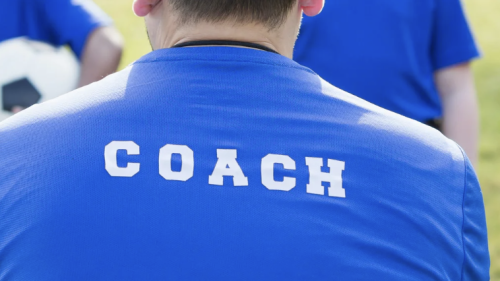Athletes dedicate countless hours to physical training—building strength, endurance, and agility to achieve peak performance. However, elite performance isn’t just about physical ability; it also requires mental resilience, focus, and emotional regulation. Sport psychology plays a crucial role in helping athletes develop these psychological skills, ensuring they can handle the pressures of competition and consistently perform at their best.
The 100% online Bachelor of Science in Sport, Exercise, and Performance Psychology at Kent State University offers aspiring coaches and practitioners a unique opportunity to explore how mental fitness complements physical training, equipping them with the tools to support athletes holistically.
The Balance Between Physical and Mental Training
Athletic success is often viewed through the lens of physical conditioning—strength, speed, flexibility, and endurance. While these elements are essential, they represent only half of the equation. Mental fitness is equally critical, as it influences an athlete’s ability to:
- Stay focused under pressure.
- Overcome setbacks and injuries.
- Build confidence and motivation.
- Maintain consistency in performance.
Without mental resilience, athletes may struggle with anxiety, self-doubt, and performance fluctuations, regardless of their physical abilities.
Why Mental Fitness is Essential for Athletes
1. Enhancing Performance Under Pressure
In high-stakes competitions, athletes face immense pressure to succeed. Psychological skills such as visualization, positive self-talk, and breathing techniques can help them stay calm and focused.
- Example: A basketball player preparing for a game-winning free throw can use visualization techniques to mentally rehearse the shot, increasing their confidence and accuracy.
2. Building Resilience and Overcoming Setbacks
Injuries, losses, and setbacks are inevitable in sports. Mentally fit athletes are better equipped to cope with challenges and return to competition with a strong mindset.
- Example: A runner recovering from a stress fracture may benefit from goal-setting strategies to maintain motivation during rehabilitation.
3. Improving Consistency and Motivation
Athletes often struggle with maintaining motivation over long seasons or challenging training regimens. Sport psychology provides tools to help athletes set realistic goals, track progress, and stay committed.
- Example: A soccer player struggling with motivation during off-season training can use goal-setting techniques to stay engaged and focused on long-term objectives.
4. Enhancing Focus and Concentration
Distractions, negative thoughts, and external pressures can interfere with performance. Mental fitness techniques such as mindfulness and concentration drills can help athletes stay present and focused on their performance goals.
- Example: A golfer preparing for a crucial putt can use mindfulness techniques to stay in the moment and block out distractions.
5. Managing Anxiety and Pre-Competition Nerves
Pre-game anxiety can negatively impact performance, causing muscle tension, poor decision-making, and fatigue. Mental training techniques help athletes regulate their emotions and enter competitions with a clear mind.
- Example: A gymnast experiencing competition nerves can practice relaxation techniques to ease tension and perform with confidence.
Key Differences Between Sport Psychology and Physical Training
| Aspect | Physical Training | Sport Psychology |
| Focus | Strength, endurance, flexibility | Mental resilience, focus, motivation |
| Goal | Enhance physical performance | Optimize mental readiness |
| Methods | Strength training, conditioning, drills | Visualization, goal-setting, self-talk |
| Challenges Addressed | Fatigue, injuries, physical limitations | Anxiety, stress, lack of confidence |
| Outcome | Improved strength, agility, and stamina | Enhanced focus, resilience, and emotional control |
How Kent State’s Online B.S. in Sport, Exercise, and Performance Psychology Prepares You for a Career in Mental Fitness
Kent State’s 100% online program goes beyond traditional sport science degrees, focusing on the psychological and behavioral aspects of athletic performance. The curriculum equips students with the skills to support athletes in optimizing both their physical and mental potential.
Key Topics Covered in the Program:
- Mental Skills Training: Learn how to implement strategies such as imagery, relaxation techniques, and focus-building exercises.
- Psychology of Injury and Rehabilitation: Explore the mental aspects of recovery and return-to-play strategies.
- Motivation and Goal-Setting Techniques: Understand how to help athletes set and achieve their performance goals.
- Group Dynamics and Team Cohesion: Learn how to foster effective communication and leadership within teams.
Career Opportunities for Graduates Include:
- Performance Coach: Help athletes develop the mental skills needed to perform under pressure.
- Sports Psych Consultant: Work with athletes to overcome performance anxiety and build confidence.
- Athletic Coach: Apply psychological principles to motivate and support athletes in training and competition.
- Health and Wellness Coach: Use mental fitness techniques to encourage long-term engagement in exercise programs.
Why Choose Kent State’s Online Program?
Kent State’s online B.S. in Sport, Exercise, and Performance Psychology offers:
- 100% Online Flexibility: Study from anywhere, balancing education with work and personal commitments.
- Practical, Career-Ready Skills: Courses are designed to provide actionable strategies that can be applied in real-world settings.
- Experienced Faculty: Learn from professionals with backgrounds in sport psychology and performance coaching.
- Affordable Tuition: Earn a high-quality degree at a competitive cost.
Take the First Step Toward a Career in Sport Psychology
If you’re passionate about helping athletes reach their full potential by focusing on mental fitness, Kent State’s Bachelor of Science in Sport, Exercise, and Performance Psychology is the perfect path to begin your journey.
Enroll today and make a difference in the world of sports and performance!









